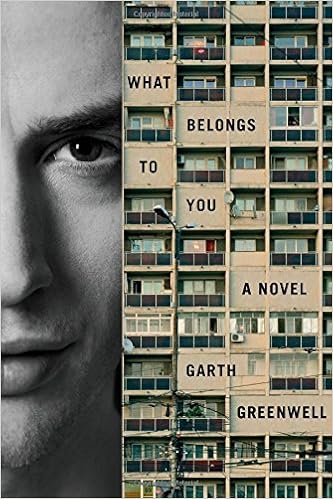For him, this is related to being asked repeatedly whether he would consider himself to be a “gay writer”. This, he understands, is a fraught question for many writers, who for decades have been told “if you write books centred on queer lives, where the gay guy isn’t just one strand, or a friend, then there are straight people for mainstream readers to identify with – but if a book really is centred on gay lives, you’ll be in this gay ghetto”.
But, he says, he has never accepted that – in fact, he thinks quite the reverse. “Absolutely I am a gay writer. And not only that, I want to tell gay stories about gay communities for gay readers, because I think that this incredible progress that queer people have made in things such as marriage equality have come at the cost of a mainstreaming narrative that has homogenised queer lives in a way that has sacrificed far too much and, tragically, has further marginalised the most vulnerable members of the queer community.”
He talks further about marriage equality as “really a marketing battle: it was about packaging queer lives in a way that allowed the value of those lives to be seen by people who are disgusted by queer lives” – although his point is also that this is probably an inevitable and necessary stage that any minority rights movements has to go through. Where that becomes problematic, he insists, is when those at the edge of the movement become further distanced, as when human rights campaigners “at their rallies in front of the supreme court in support of marriage equality, said, Oh trans person get off the stage.”
Ultimately, he says, “any project of liberation has to have as its goal the multiplication of legitimate models of life”. Pulsing through What Belongs to You is Greenwell’s suggestion that there is something substantial and significant in the relationship between Mitko and the narrator. The fact that they first meet in a bathroom – rather than a shop, or a cafe, or even in a club – is hardly accidental; what Greenwell is trying to show is that in places such as these, “people like my narrator and Mitko can meet in a face-to-face way that is unstructured by authority. Those spaces scramble the categories by which we organise our life, categories such as class and race, and they allow for human connection across that space.” That belief is supported, he argues, by the fact that cruising spaces persist even where “relative queer privilege is most pronounced” – places such as Hell’s Kitchen in Manhattan, for example – and that they have not disappeared even where oppression is in retreat...
Garth Greenwell interview, author unknown, The Guardian, who seem rather keen on his book, What Belongs To You. See also I've Been Cruising Since I Was 14, and Topography Of A Novel: Garth Greenwell on how he wrote What Belongs to You - 'Garth Greenwell reflects on the summer he spent in Madrid revising what has been dubbed the ‘great gay novel of our times' ! The OTT quote comes from The New Republic.
Any journalist who asks 'Are you a gay writer?' or 'How does being gay influence your work?' needs their fingers broken.
Saturday 26 March 2016
Subscribe to:
Post Comments (Atom)






No comments:
Post a Comment